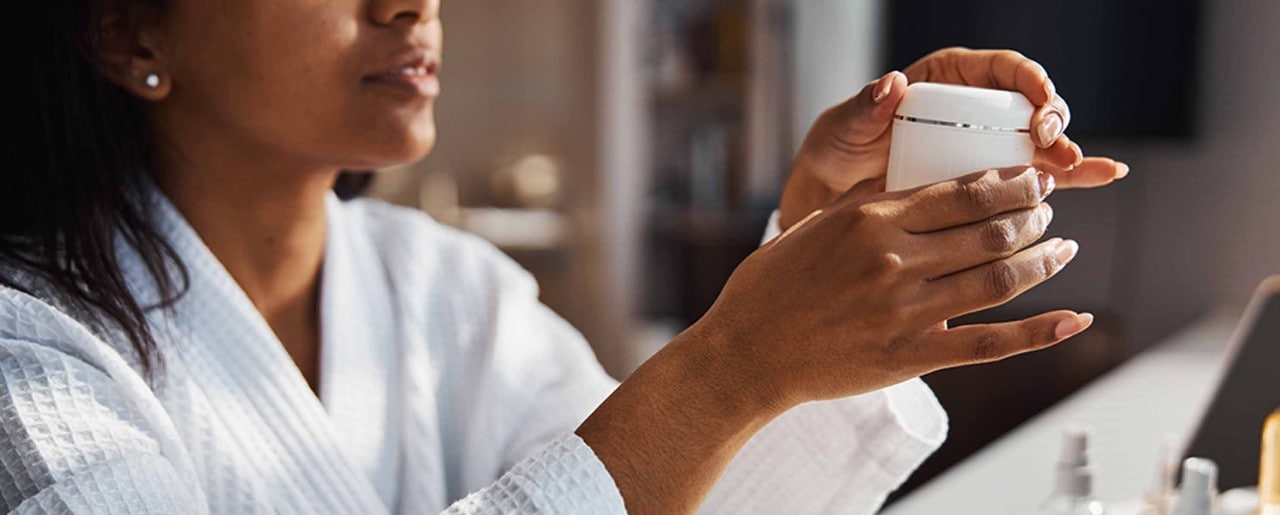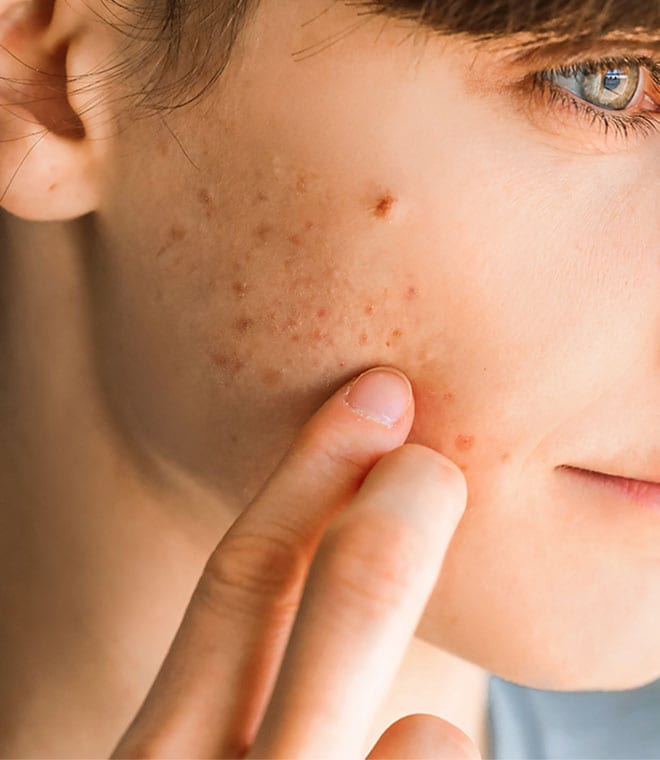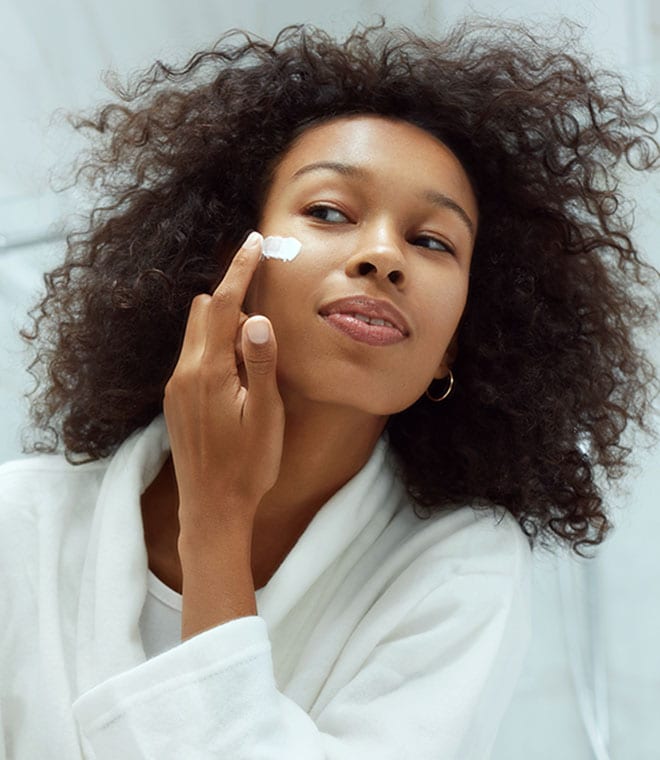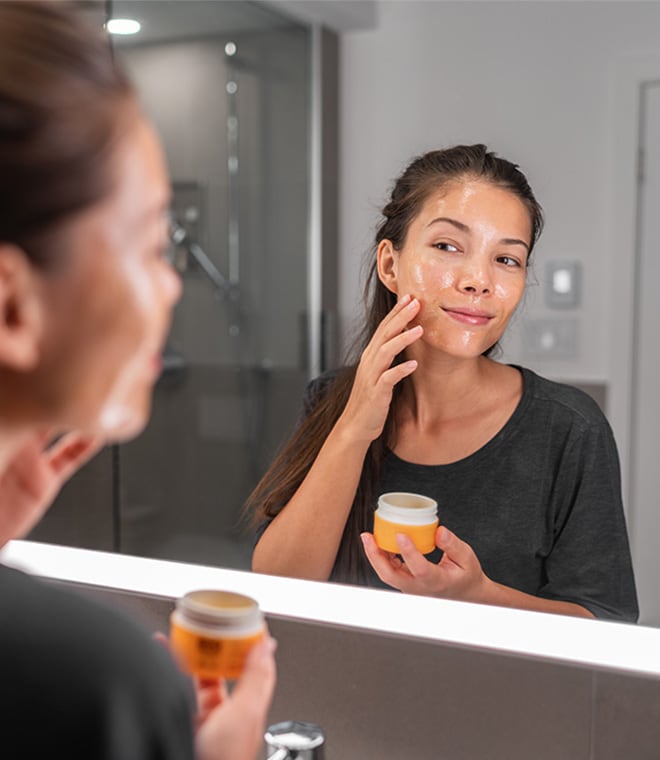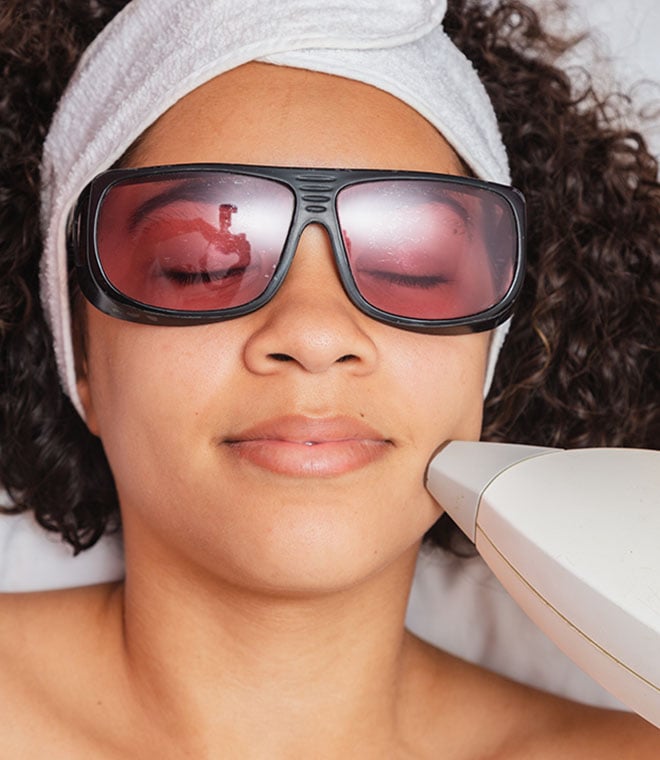Beauty
Retinol: Benefits and usage
By Anna H. Chacon, MD, Fellow of the American Academy of Dermatology Apr 19, 2024 • 7 min
Retinol is a form of vitamin A and belongs to the retinoid class of chemical compounds. Retinol is a popular skin care ingredient because of its antioxidant properties and anti-aging benefits. But the benefits of retinol don’t stop with reducing the appearance of fine lines and wrinkles. There are many ways this ingredient can work for you.
What is retinol used for?
Vitamin A is an important nutrient for the skin. It can promote healthy cell growth and regeneration, helps build collagen, and has powerful anti-aging and antioxidant properties that can help reduce skin damage from environmental toxins and free radicals.
Retinol skin benefits may include helping to even out skin tone and texture and reducing the appearance of:
- Acne
- Fine lines and wrinkles
- Skin discoloration from pigmentary disorders like postinflammatory hyperpigmentation and melasma
- Psoriasis lesions
- Minor acne scarring
Does retinol help acne?
Retinoids, including retinol, are comedolytic agents, which mean they work to unclog blocked pores. Over-the-counter retinol treatments can help heal mild to moderate acne, but retinol might not be the best choice for acne that’s more severe. Your dermatologist may recommend a prescription retinoid or another medication, such as tretinoin, adapalene (available in over-the-counter and prescription strengths) or tazarotene, as these may be more effective for more severe acne.
People who have acne related to hormonal changes should visit their dermatologist before using retinol for acne. You should also talk to your dermatologist before you use retinol for acne scars.
In addition to treating acne, retinol is commonly used to address other skin problems. However, people with red, inflamed skin associated with conditions like eczema or rosacea shouldn’t use a product with retinol without talking to their dermatologist. Retinol for rosacea may not be the best choice for your skin type, and it may cause irritation.
When to start using retinol
People in their 20s may benefit from starting a skin care regimen that includes retinol, and those in their 30s may choose to start using retinol if they haven’t already, since it can help keep their skin looking healthy into their 40s and 50s.
When to use retinol in your skin care routine depends on the product you choose. If you’re using a retinol serum, use it after you cleanse but before you moisturize at bedtime. If you’re using a retinol moisturizer, use it after you cleanse at bedtime.
Since retinol can make your skin more sensitive to the sun, increasing your risk for sunburn and other skin damage, use products containing retinol at night, and always apply sunscreen during the day before going outdoors.
How to use retinol
To use retinol, start with the lowest formulation you can find. Many products don’t disclose this information on the packaging, so look for one that does, and start with a low concentration of retinol if your skin is somewhat dry or sensitive.
To avoid dryness and other potential side effects of retinol, start using the product slowly. If your skin tends to react to new products, or if it’s mildly sensitive, use retinol once or twice a week to start. If your skin takes to new ingredients well, you may consider using the retinol product every other day to start. After a couple of weeks, if your skin is tolerating it well, consider increasing the number of times you use the product by one or two days a week. If after a month you haven’t experienced any side effects, you can consider using the product every day.
How much retinol to use also depends on your skin, but no matter what skin type you have, over-applying retinol can lead to dryness and other skin issues. The ideal amount is the size of a pea for your face and the same amount for your neck and décolleté. If that amount causes irritation, apply a smaller amount of product less frequently. You can also try a product with a lower concentration of retinol.
Here are some tips to get the most out of your retinol treatments:
- Apply the product to your skin around 30 minutes after you wash your face, avoiding your eyes and carefully following the instructions provided
- Apply the product at night before bed, as retinol can make your skin more sensitive to the sun during the day
- If you experience irritation after you increase the frequency of application, stop using it until the irritation resolves, and then you may try using the product again but less often, and try a product with a lower concentration
- If your skin tolerates retinol well, you can try using it more often
- Applying a moisturizer after the retinol product may help reduce skin dryness
Side effects of retinol
Retinol may cause side effects for some people, especially those with sensitive or dark skin. Women who are pregnant shouldn’t use retinol.
Common side effects of retinol on the skin include:
- Excessive dryness
- Redness
- Scaling
- Itching
- Photosensitivity to UV light
Less-common side effects of retinol and other retinoids on the skin include:
- Discoloration
- Acne or eczema flare-ups
- Swelling
- Blistering
- Stinging
If you experience side effects, stop using the product and talk with your dermatologist about other options for your skin.
Retinol can be a beneficial anti-aging ingredient for the skin. If your skin tolerates retinol well, using it regularly may be an effective way to keep it looking healthy and help reduce environmental and sun damage. Retinol isn’t for everyone, though, as it can dry out your skin and cause other side effects. If you’re unsure whether you should use a product containing retinol, talk to your dermatologist.
Clinically reviewed and updated by Julie McDaniel, MSN, RN, CRNI, April 2024.
- https://my.clevelandclinic.org/health/treatments/23293-retinol
- https://www.aad.org/public/everyday-care/skin-care-secrets/anti-aging/retinoid-retinol
- https://www.aocd.org/page/Retinoidstopical
- https://www.aad.org/public/everyday-care/skin-care-secrets
- https://www.aad.org/public/everyday-care/skin-care-secrets/face/treat-large-pores
